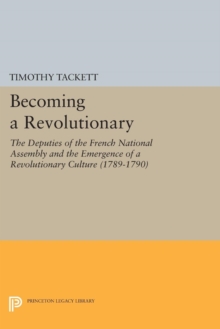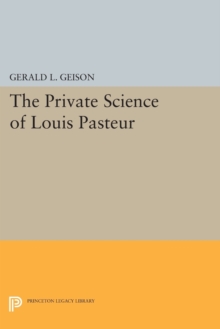
The Right Tools for the Job : At Work in Twentieth-Century Life Sciences Hardback
Edited by Adele E. Clarke, Joan H. Fujimura
Part of the Princeton Legacy Library series
Hardback
Description
This volume examines scientific practice through studies of research tools in an array of twentieth-century life sciences.
The contributors draw upon and extend the multidisciplinary perspectives in current science studies to understand the processes through which scientific researchers constructed the right--and, in some cases, the wrong--tools for the job.
The articles portray the crafting or accessing of specific materials, techniques, instruments, models, funds, and work arrangements involved in doing scientific work.
They demonstrate the historical and local contingencies of scientific problem construction and solving by highlighting the articulation between the tools and jobs.
Indeed, the very "rightness" of the tools is contingently constructed, maintained, lost, and refashioned. The cases examined include evolutionary biology laboratory systems (James R.
Griesemer), the plasmid prep procedure in molecular biology (Kathleen Jordan and Michael Lynch), models in the human ecology of African pastoralists (Peter Taylor), the micromanometer in metabolic studies (Frederic L. Holmes), genetics research and the role played by Planaria (Gregg Mitman and Anne Fausto-Sterling) and by corn (Barbara A.
Kimmelman), quantitative data in field biology (Yrj Haila), taxidermy in natural history (Susan Leigh Star), technical standardization in bacteriology (Patricia Peck Gossell), and the discipline of immunology as the tool for stabilizing conceptual definitions in the field (Peter Keating, Alberto Cambrosio, and Michael Mackenzie). Originally published in 1992. The Princeton Legacy Library uses the latest print-on-demand technology to again make available previously out-of-print books from the distinguished backlist of Princeton University Press.
These editions preserve the original texts of these important books while presenting them in durable paperback and hardcover editions.
The goal of the Princeton Legacy Library is to vastly increase access to the rich scholarly heritage found in the thousands of books published by Princeton University Press since its founding in 1905.
Information
-
Available to Order - This title is available to order, with delivery expected within 2 weeks
- Format:Hardback
- Pages:378 pages
- Publisher:Princeton University Press
- Publication Date:19/04/2016
- Category:
- ISBN:9780691632759
Information
-
Available to Order - This title is available to order, with delivery expected within 2 weeks
- Format:Hardback
- Pages:378 pages
- Publisher:Princeton University Press
- Publication Date:19/04/2016
- Category:
- ISBN:9780691632759










